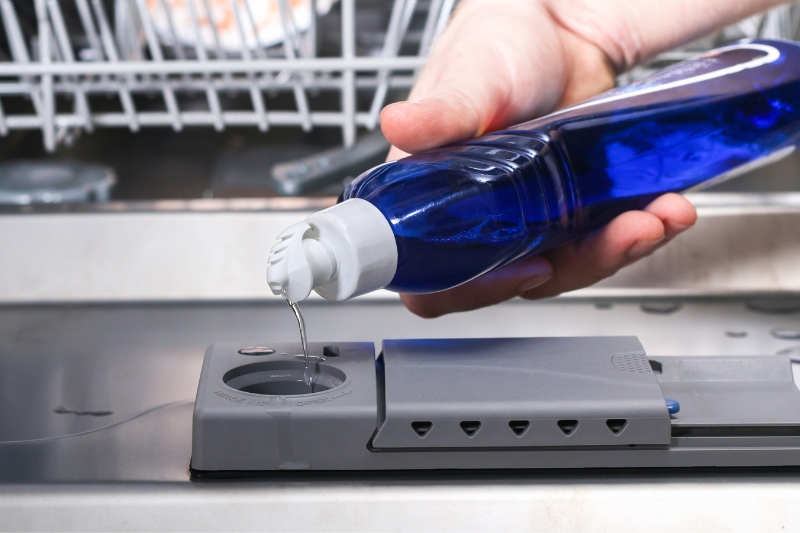What does rinse aid actually do? And if you don’t use rinse aid in your dishwasher, is this bad for your dishes or the machine itself?
There is a lot to unpack with this dishwasher question, but let’s get straight to the quick answer and then explore the details, shall we?
Do You Actually Need Rinse Aid?
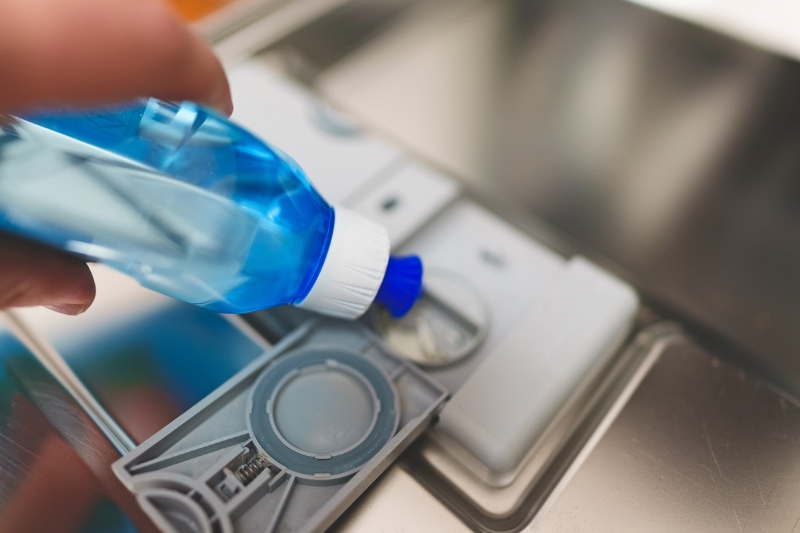
Rinse aid isn’t essential for your dishwasher to work. It certainly isn’t as important to use as cleaning tablets or salt, for example.
However, if you do use rinse aid, it can help to avoid watermarks and streaks on your glasses and dishes.
There has been a rise in people using rinse aid in their dishwashers in the UK in the last few years, and this isn’t by chance.
In 2017, EU regulation 259/2012 imposed a limit on the amount of phosphates in dishwasher tablets, causing manufacturers to change their formulas.
Phosphates are excellent for cleaning dishes and glasses, but harmful to the environment. So, this law was put in place to reduce the amount of this chemical in dishwasher detergents.
This meant that the dishwasher tablets we used suddenly weren’t leaving the streak-free shine that we knew and loved, and as this was a legal change, switching brands wasn’t going to help.
So, rinse aid came in and saved the day. Adding some rinse aid to the cycle ensured that your glasses looked as shiny as they did before, and many people in the UK decided to start using rinse aid as a result.
What Is Rinse Aid?
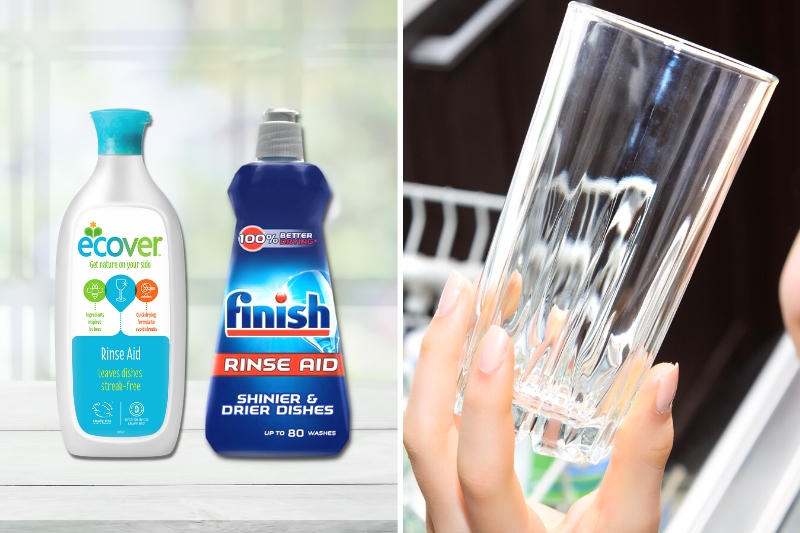
Rinse aid is quite a clever little product. It is a surfactant, which means it lowers the surface tension of water.
So, rather than the water staying on your glasses and dishes until it evaporates, the water glides off of the surface very quickly. This ensures that the water isn’t on your glasses for long enough to produce water marks and streaks.
So, rinse aid is a direct replacement for the phosphates that were removed from dishwasher tablets.
What Can You Use as an Alternative to Rinse Aid?
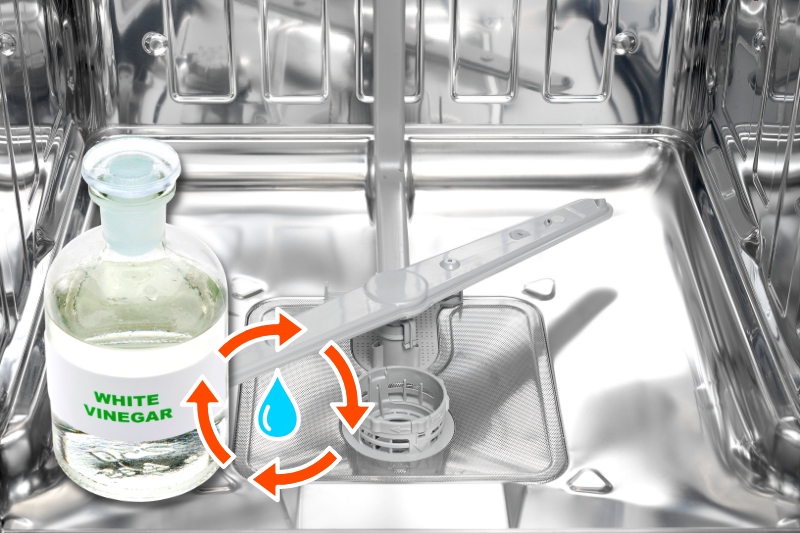
If you don’t have rinse aid or want to use a more natural solution to your streaks and watermarks, you can try using white vinegar instead.
A cup of white vinegar on the bottom rack during a cycle is enough to ensure a streak-free shine.
In Conclusion
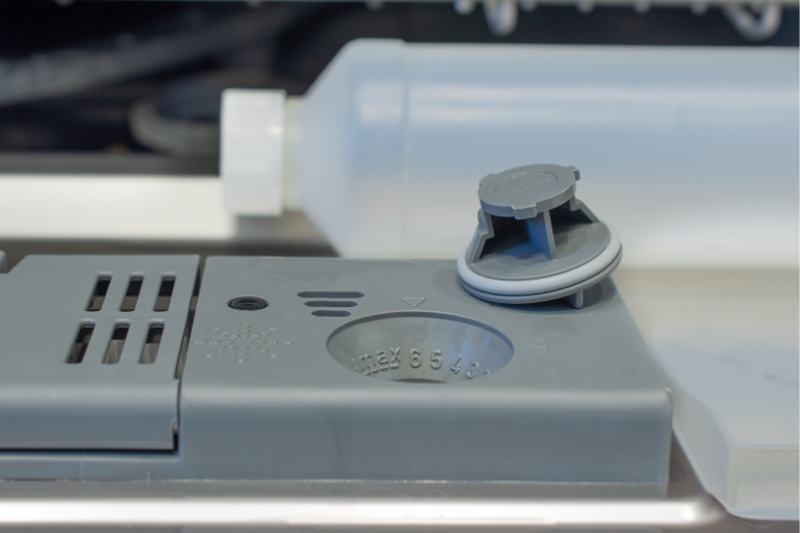
Just to recap, you don’t have to use rinse aid in your dishwasher. It will not prolong the life of your dishwasher or dishes or anything like that. However, it will ensure a streak-free shine to your glassware if you do use it.
We hope this look at rinse aid has been helpful. For even more tips and tricks about dishwashers and to find out which dishwashers are the best in the UK right now, please explore In The Wash further.
We have everything you need to keep your dishwasher running perfectly or to choose the best dishwasher for your home.

In The Wash is your guide to the best laundry and cleaning products, tips and tricks. Our mission is to solve the UK’s cleaning and laundry dilemmas!
